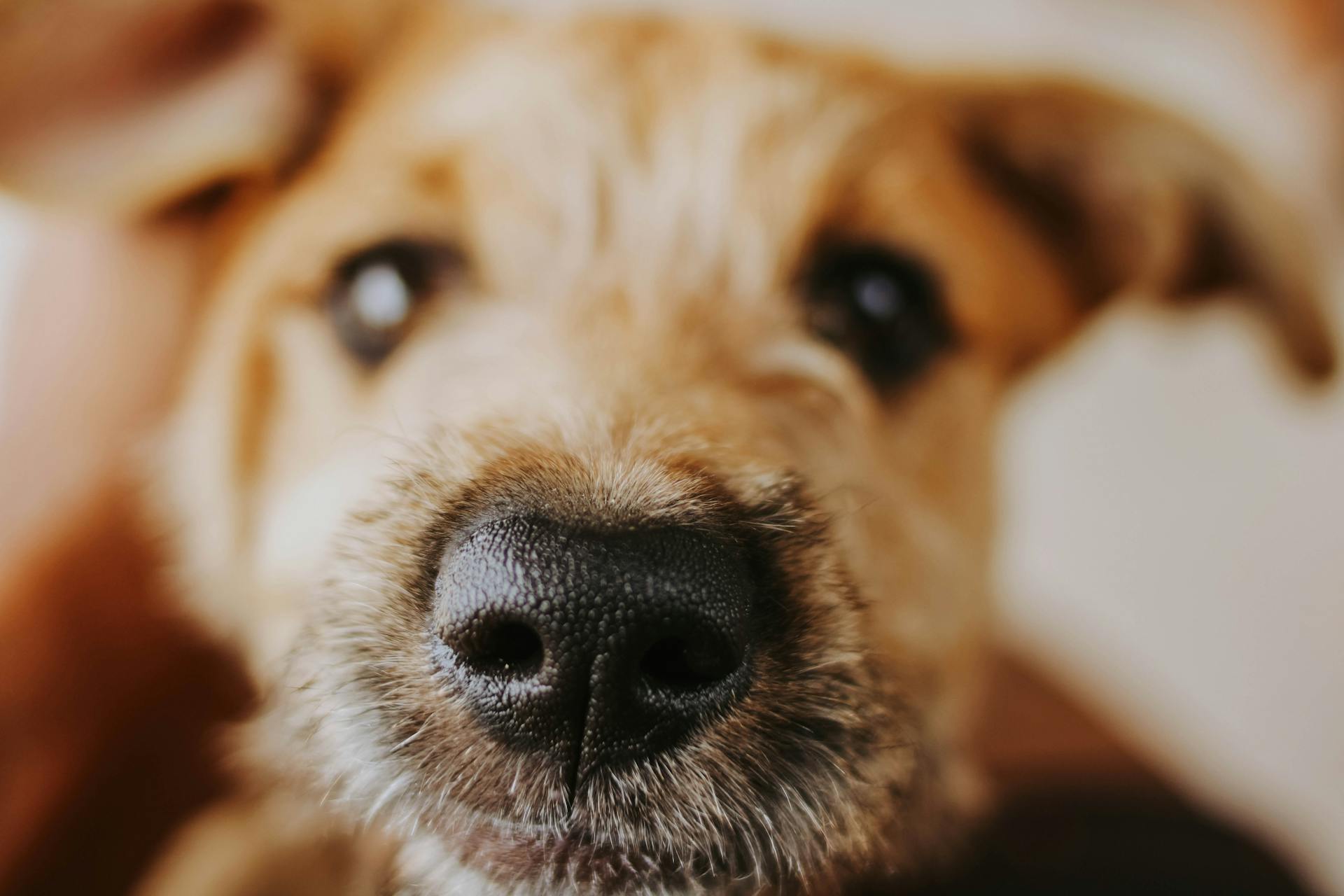
Dogs may get their gums cut or bruised for various reasons, usually because of roughhousing with another pet or eating something that aggravated their gums. In any case, bleeding gums can be a sign of irritation or infection. Not to worry though, as there are several ways to help stop your pup’s bleeding gums.
The first and best option is to take your furry friend to the vet for proper diagnosis and treatment based on their individual needs. However, if time or money is a concern, there are several home remedies that you can use.
The first thing you should do when your dog’s gums start bleeding is check their mouth for foreign objects such as food chunks, bones or sticks. If an object is causing the injury then carefully remove it and clean the wound with an antiseptic rinse or hydrogen peroxide. Once this has been done, take a clean cloth covered in ice and press it gently against the bleeding area. This helps constrict blood vessels around the wound and stops it from bleeding further. Additionally, oral rinses such as chlorhexidine can be helpful in cleaning any accumulated bacteria from the wound site while calming inflammation and promoting healing.
In addition to these steps, make sure that your pup is drinking enough water throughout the day as being dehydrated increases the chances of gum inflammation and bleeding. Introduce some healthy chew toys like bones and rubber balls into his playtime routine so he has something more appropriate to gnaw on than furniture or random objects! It’s also important to feed him a diet rich in high-quality proteins, vitamins A and C as well as antioxidants for gum health benefits. Lastly, make sure that regular brushing using toothpaste safe for pets is part of your pup’s daily routine!
Following these simple steps will help make sure that your best friend no longer suffers from recurring gum bleeding!
Explore further: Dog Ate Pack of Gum
What should I do if my dog's gums are bleeding?
If your dog's gums are bleeding, it is important to understand what might be causing the issue and seek medical treatment. Bleeding gums can be caused by a number of different things, including disease or trauma. If the bleeding doesn't stop on its own or the dog appears uncomfortable, it is important to take them to the veterinarian for an examination.
Your vet will likely want to complete a physical inspection and assess your dog's history. This could include checking for dental problems like infection, inflammation, broken teeth or poor oral hygiene. It may even warrant testing for diseases like canine distemper virus which can lead to severe gum damage and dehydration. Depending on the cause of the bleeding, treatment could range from medicine or topical ointment to more extensive surgery.
In addition to addressing medical causes of bleeding gums, it is also important for owners to take proactive steps such as providing daily oral care and feeding a healthy diet. Brushing your dog's teeth is important for preventing plaque buildup and tartar that cause dental issues like gum disease — one of the most common causes of gum bleeding in dogs. Feeding them a balanced diet with essential nutrients such as Vitamin C can also enhance their dental health over time.
By understanding what brings on gum inflammation, getting professional help and taking preventive steps when necessary, you can ensure that your pet has a healthy mouth free from pain and irritation — including bleeding gums!
A unique perspective: Health Dog Gums
How can I stop my dog's gum bleeding quickly?
If your dog's gums are bleeding, it can be a sign of serious illness, and you should take your pup to the veterinarian right away. However, if the cause is minimal trauma or gum irritation, there are some steps you can take to help your dog heal.
To start, increase the amount of water in your pet’s diet; staying hydrated can help the gums recover faster. Along with increasing liquid intake, offer your pup cold foods like diced apples and carrots. The coolness of these foods can help reduce inflammation and promote healing. You may also want to consider purchasing a canine mouthwash or oral rinse specifically formulated for healing wounds in dogs.
In addition to wound care products, look into natural supplements that keep the gum tissue healthy. Coconut oil and omega-3 fatty acids are two great options for supporting proper gum health; both have anti-inflammatory properties that can reduce bleeding from minor trauma and irritation. If your pup will allow it, brushing their teeth regularly with canine toothpaste can also help keep their gums healthy and reduce inflammation associated with mild gum disease.
When it comes to taking care of your pet’s health, it is important to consult a qualified veterinarian for assistance with potential medical problems such as excessive bleeding from the gums. But using a combination of natural supplements, cold foods and canine dental hygiene products can go a long way towards reducing minor gum irritation and helping your pup heal quickly!
Consider reading: Dogs Gums Bleeding When Chewing Toy
What are some home remedies for bleeding gums in dogs?
Bleeding gums in dogs can be an uncomfortable and often worrisome situation for both the pup and the owner. Unfortunately, it’s not a rare occurrence, as there are many things that can cause gum disease and other oral health issues in our furry friends. Thankfully, there are some home remedies available which make it easier to manage bleeding gums without a trip to the vet.
One of the most popular home remedies for a dog with bleeding gums is adding certain types of food to its diet. Bones, apple cider vinegar and yogurt are known to help fight bacteria that can be causing your pup's poor oral health. Bones help scrap away plaque that builds up on your dog's teeth while apple cider vinegar works by balancing out the bacteria levels in their mouth, which can help soothe irritated gums. Additionally, raw meat or yogurt rich in enzymes also helps reduce bad germs in your pup's mouth as it acts as a natural antiseptic.
Another widely used home remedy when it comes to dealing with gum soreness is herbal remedies. Stuff like chamomile and aloe vera have antibacterial properties which can aid in reducing gum bleeds. Many owners wrap these herbs into pre-made "teabags" they add while their pups chew on them - which provides a gentle massage and extra utility from these herbal remedies. Additionally, echinacea root extract and green tea leaves are also often used for their astringent properties, helping tighten up sores around your pup's teeth & gums quickly alleviating some degree of pain causing the bleed in the first place.
Overall, these home remedies offer pet owners an easy way to heal their pup's discomforting bleeding gum issues quickly before seeking professional advice from their regular vet specialist if symptoms persist after a few days at home. Though it's always recommended you seek specialized treated whenever possible, knowing how to best manage minor issues at home provides valuable peace of mind throughout the entire process!
For more insights, see: Locust Bean Gum
How do I heal dog gums that are bleeding?
It can feel worrisome when your beloved pup's gums are bleeding. While the sight of any blood from your fur-baby always seems concerning, fortunately, there are many ways to treat dog gums that bleed.
The most important thing to do when your fur-baby’s gums start to bleed is to inspect their mouth for any signs of dental problems such as thorns, debris or a foreign object caught in their mouth. These items can cause irritation and bleeding and must be removed as soon as possible. Once any foreign objects have been removed, it is possible then to begin treating the inflamed gum area.
First, determine if there is an underlying condition causing the bleeding or if the gum tissue was just overly irritated due a rough cleaning or playing outside too aggressively. If there is another condition causing the gum trouble such as periodontal disease or infection, then it is important that you take your pup to the vet as soon as possible to be treated accordingly.
If, however, no underlying issue was found and the gums were more likely just irritated due to playing outside of the normal activity then treatment at home should suffice in healing your dog’s inflamed gums. Gently wiping the bleeding area with a sterile cloth several times a day can reduce swelling and help heal cuts quickly. You can also try either an antiseptic spray with chlorhexidine gluconate for dogs that have oral issues like an infected gum line or perhaps a saline solution rinse for simple inflammation from overexertion of playtime outside in order to reduce inflammation and speed up healing time. Additionally, providing your pup with tough toys such as chew bones specifically designed for this type of issue will help toughen up their mouth tissue while giving them something they enjoy also so they won't injure themselves further while out running around at playtime outdoors.
If your pet continues having bleeding trouble after trying these treatments at home then it may be time to take them down for an inspection by a veterinarian for further assistance in treating bleeding gums.
You might enjoy: How Long Will a Female Dog Bleed
What can I give my dog for gum bleeding?
Gum bleeding in dogs can be a serious health issue, and it’s important to address it immediately and seek professional help when necessary. While there are a number of medicines that can be prescribed by a veterinarian, there are also some simple things you can do to give your dog relief.
The first step is to look at your pup's diet. You should ensure they are receiving the right balance of vitamins and minerals so their gums remain healthy and strong, as deficiencies can contribute to gum issues. If their food doesn't contain the necessary nutrients, you might even consider adding pet-specific supplements like omega-3 fatty acids or zinc for extra antioxidant benefits.
Next, make sure your buddy has access to clean water throughout the day - keeping them hydrated will further improve their gum health and reduce lesions. You should also check if any changes in their environment might’ve led to the bleeding - such as a new pet or cleaning agent that could act as an irritant. Finally, be sure to brush your pup’s teeth against plaque build-up regularly with a specifically designed toothbrush and toothpaste (never use anything meant for humans).
Addressing gum issues immediately is key, so if it persists you should consult your veterinarian for more serious methods such as antibiotics or an oral surgeon investigation. By implementing these steps and following advice from a vet, you will be certain to keep your puppers healthy, happy and free from gum bleeding!
Additional reading: Dog Gum Lump
Sources
- https://www.petmd.com/dog/general-health/your-dogs-gums-problems-watch
- https://www.doggybrace.com/my-dogs-gums-are-bleeding/
- https://topdogtips.com/bleeding-gums-in-dogs/
- https://www.petcoach.co/question/
- https://naturallydaily.com/home-remedies-for-dog-gum-disease-periodontitis/
- https://wikidoggia.com/post/how-to-stop-dog-gum-bleeding
- https://yunnan-baiyao-store.com/blogs/read-our-articles/my-dog-has-bleeding-gums-what-should-i-do
- https://www.wellpets.com/blog/168-what-to-do-if-your-dog-s-mouth-is-bleeding
- https://heartandpaw.com/pet-parent-resources/bleeding-gums-in-dogs
- https://topdogtips.com/dog-gum-infection-home-remedies/
- https://www.petmoo.com/dogs/home-remedies-for-bleeding-gums-in-dogs/
- https://outwardhound.com/furtropolis/health-wellness/my-dogs-gums-are-bleeding
Featured Images: pexels.com


